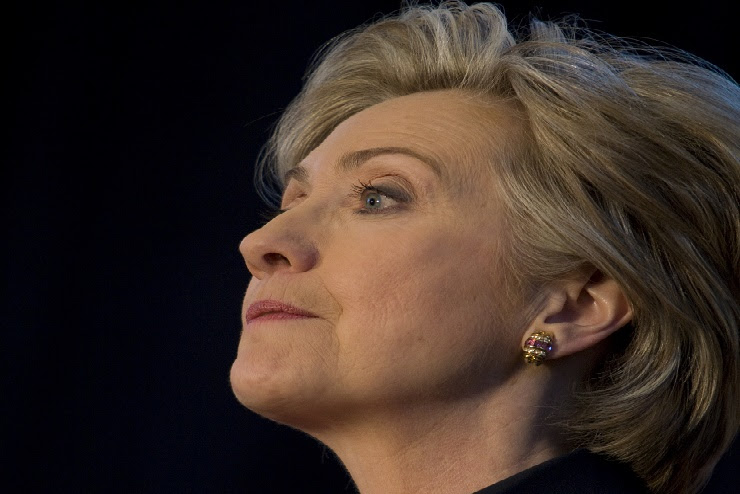
PORT-AU-PRINCE, Haiti, Thursday March 17, 2016 – Six years after Haiti was devastated by the massive 2010 earthquake, many people in the impoverished Caribbean country continue to hold Hillary Clinton’s State Department and the Clinton Foundation responsible for a recovery effort that cost billions for what is widely perceived to be little return.
The New York Times reports that the Clintons have been a target of protesters in Port-au-Prince, who claim earthquake aid money was mismanaged and lucrative deals went to Clinton cronies.
The litany of complaints included the circumstances surrounding the Caracol industrial park, a project which was backed by both the Clinton Foundation and the State Department. Hundreds of farmers were evicted from their land during the park’s construction, and the project delivered less than half the number of promised jobs.
Also singled out by critics was Mrs Clinton’s brother Tony Rodham, who turned up in business ventures on the island, sparking speculation about insider deals.
Outspoken activists like Ezili Dantò, a human rights lawyer who founded the Haitian Lawyers Leadership Network, say they cannot help believe that Clinton gave her brother a hand.
“She is looked upon as a liberal and someone who respects human rights, workers’ rights and so forth,” Ms Dantò said. “But we haven’t had that experience with her in Haiti.”
Mrs Clinton and her husband, former President Bill Clinton, have been tied to no country more closely than Haiti. As a United Nations special envoy, Mr Clinton helped raise hundreds of millions of dollars for the country after its destruction by the 2010 quake. Mrs Clinton travelled there four times as secretary of state and shepherded billions of dollars in American aid.
Yet as she seeks the world’s most powerful job and Haiti continues to flounder in the political mire, a vocal segment of Haitians and Haitian-Americans is speaking of the Clintons with the same contempt they reserve for some of their past leaders.
In widely read blogs, in protests in Port-au-Prince and outside Mrs Clinton’s campaign headquarters in Brooklyn, and on popular call-in radio shows in Florida, the Clintons have become prime targets of blame for the country’s woes, the New York Times reports.
“A vote for Hillary Clinton means further corruption, further death and destruction for our people,” said Dahoud Andre, a radio show host in New York who has helped organize protests against the Clintons. “It means more Haitians leaving Haiti and not being able to live in our country.”
Clinton critics also point to past president Michel Martelly, whom Mrs Clinton helped get elected and who turned out to be another in a long line of troubling Haitian leaders.
Tony Jeanthenor, a member of the Miami-based Haitian human rights group Veye-Yo as well as Lavalas Family, a Haitian political party, said Senator Bernie Sanders of Vermont had his vote because of the senator’s distaste for involvement in other countries’ affairs.
“Nothing good for Haiti can come out of Hillary because of her past behaviour,” Jeanthenor said.
Clinton nevertheless commands a strong and staunchly loyal Haitian support base.
Reverend Philius Nicolas, 85, of Brooklyn, an elder statesman of the Haitian community in New York, said he had heard all the complaints and understood the frustration.
But Nicolas, who proudly displays in his church office a photo of him and other Haitian-Americans standing with Mrs Clinton during her 2000 Senate campaign, said he was going to vote for her again. He said he thought she would be the best leader for the United States, Haiti’s biggest benefactor.
“We can’t vote for a president because of Haiti only,” Nicolas said. “If things go bad in the United States, we are the first ones who are going to get hurt. First and foremost, we need something good for us and then for back home.”
Jean Monestime, a Haitian-American who is the chairman of the Miami-Dade County Commission as well as a chairman of Caribbean Americans for Hillary, agreed. Many Haitian-Americans in South Florida still appreciate her efforts on the country’s behalf, he said, and intended to vote for her.
The others should not “keep whining and complaining,” he said, because if another candidate wins, one who is less interested in Haiti, “we are going to be marginalized by the change.”














